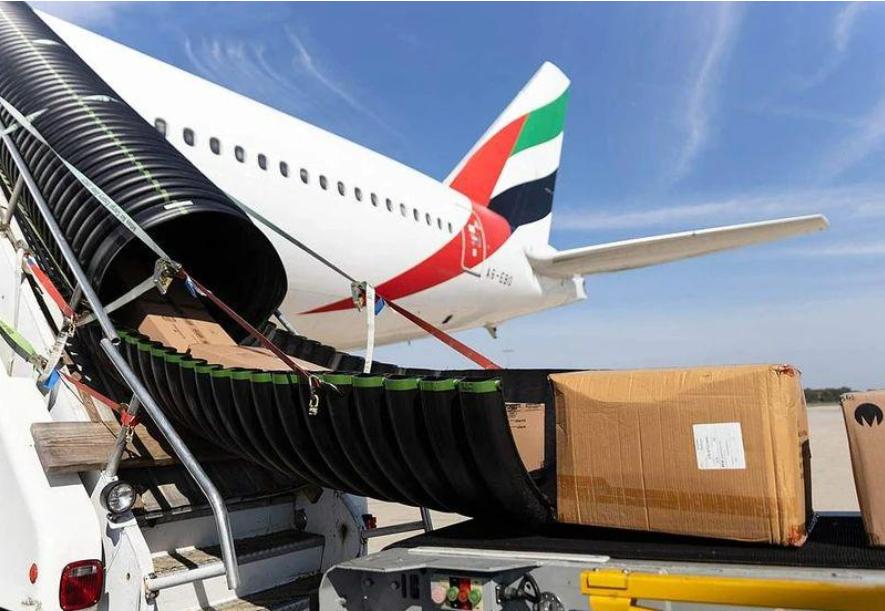
According to U.S. Customs and Border Protection, the growth of e-commerce business has led to a large number of shipments eligible for minimum duty-free exemptions, with the number of minimum import packages in the United States exceeding 1 billion in 2024. As of January 11, 2025, U.S. Customs and Border Protection has fully implemented Section 321, the "minimum amount of tax exemption declared (also known as small exemption)." The Mexican Tax Agency announced the implementation of the new tariff policy on December 31, 2024, and from January 1, 2025, there will be a 17% tariff on goods worth between $50 and $117 from the North American Free Trade Agreement (USMCA) member countries such as the United States and Canada. In addition, Vietnam also issued a statement that from February 18, 2025, Vietnam will stop the VAT exemption policy for small goods imported by express delivery and imported goods with a value of less than 1 million VND imported through e-commerce platform services will no longer enjoy duty-free treatment.
The United States, Mexico and Vietnam have tightened their tax exemption policies for small items. The first is the impact on these countries themselves. Tightening the tax exemption policy for small items can reduce the impact of low-priced foreign goods on their own national markets, help eliminate unfair competition between domestic and foreign goods in taxation, and promote tax fairness. At the same time, imposing tariffs on low-value goods and small-value goods imported through Courier companies can increase the government's fiscal revenue, close tax loopholes, and provide more financial support for public services and social security. In addition, it will help protect the domestic market, promote the development of industries such as local textile and garment manufacturers, enhance the competitiveness of local enterprises, promote local consumption and the development of small and medium-sized enterprises, and reduce the impact of low-priced foreign goods on local enterprises.
The second is the impact on cross-border e-commerce, after these countries tighten the tax exemption policy of small pieces, it means that cross-border e-commerce needs to bear higher import taxes and fees, which directly increases the operating costs. In order to maintain competitiveness, some cross-border e-commerce may choose to raise prices or reduce profits and costs, such as optimizing supply chains, improving production efficiency, etc., but this may weaken their market competitiveness. Cross-border merchants need to adapt their business models to the new tax policy. For example, increasing the layout of overseas warehouses to reduce the burden of tariffs and improve the speed of delivery. Some cross-border e-commerce players may choose to reduce or stop their business in certain markets to avoid excessive taxes and operating costs. With the tightening of tax policies, cross-border e-commerce needs to pay more attention to compliance operations to ensure the legitimacy and sustainability of business. This requires cross-border e-commerce to strengthen the research and understanding of the policies and regulations of the target market to ensure the compliance of their own business activities. Cross-border e-commerce exporters may need to adjust their export strategies to accommodate the new tax policy. For example, increasing the understanding and research of the target market, developing more accurate marketing and pricing strategies, and strengthening cooperation with local partners. At the same time, with the tightening of tax policies, cross-border e-commerce importing countries may need to strengthen the supervision of cross-border e-commerce. This requires the government of the importing country to establish a sound regulatory system and system to ensure the fairness and sustainability of taxation, and protect the rights and interests of consumers and fair competition in the market.
The third is the impact on the global trade pattern, and the tightening of the tax exemption policy of small items in these countries can be regarded as an increase in trade barriers. This may affect the liquidity and efficiency of global trade, resulting in higher trade costs and lower trade volumes. In order to reduce taxes and operating costs, cross-border e-commerce players and manufacturers may re-evaluate their global supply chain layout. This may lead to the adjustment and optimization of the supply chain to adapt to new tax policies and market environment. In the context of globalization, trade links between countries have become increasingly close. These policy changes may prompt countries to strengthen international cooperation to jointly address the opportunities and challenges brought by cross-border e-commerce, and promote the health of global trade development by enhancing information sharing and harmonizing tax policies.
To sum up, the tightening of the tax exemption policy of small items in the United States, Mexico and Vietnam has many impacts on other countries. This requires countries to pay close attention to policy changes and strengthen compliance operations to adapt to the new market environment. At the same time, countries also need to strengthen international cooperation to jointly deal with the challenges and opportunities brought by cross-border e-commerce and promote the healthy development of global trade.

The AI race in 2025 is playing out like an absurd drama: Jensen Huang, the head of Nvidia, the global computing power giant, is on one hand proclaiming that 'China will defeat the U.S. in the AI race,' while on the other hand pleading with the U.S. government, 'Stop building walls, the market is collapsing.'
The AI race in 2025 is playing out like an absurd drama: Je…
In the globalized trade system, the efficiency of ports as …
The Tokyo Metropolitan Police Department of Japan recently …
On December 9th local time, the Federal Reserve will hold i…
On December 8, 2025, Lancaster House in London hosted a piv…
The Chief of Staff of the Israel Defense Forces, Zamir, sai…